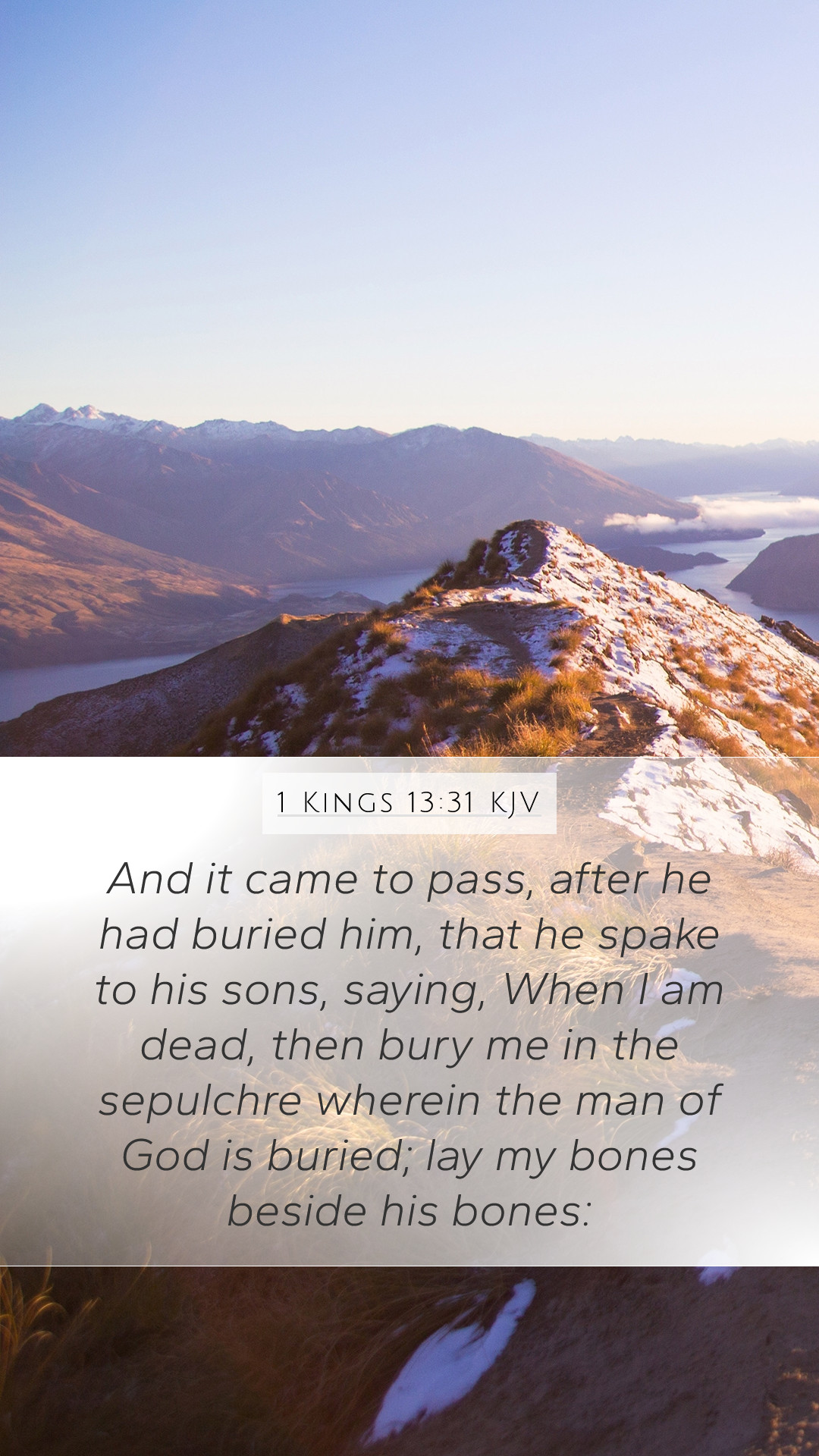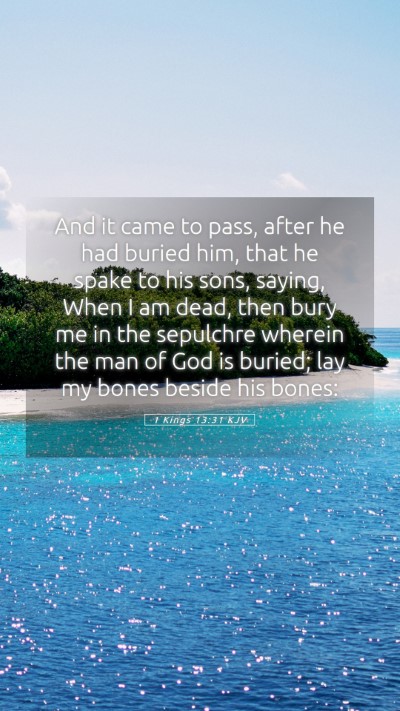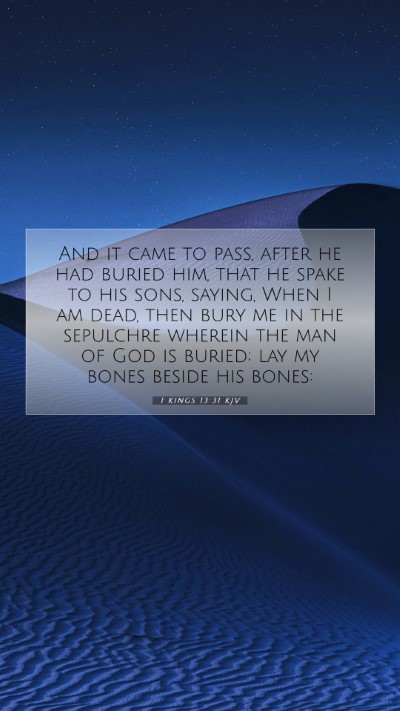Bible Verse Explanation: 1 Kings 13:31
Bible Verse: "And it came to pass, after he had buried him, that he spake to his sons, saying, When I am dead, then bury me in the sepulchre wherein the man of God is buried; lay my bones beside his bones."
Understanding 1 Kings 13:31
This verse presents a profound moment in the narrative surrounding the prophet of God who delivered a message of judgment to King Jeroboam. The context involves the burial of the prophet who had been deceived and ultimately killed for disobeying God's command.
Insight From Commentaries
-
Matthew Henry's Commentary:
Henry notes the significance of the request made by the man who is speaking to his sons. It reveals a deep connection to the prophet of God, indicating that he sees value in being associated with the man who was faithful to God's word. This speaks volumes about the legacy of the faithful. The man's desire to be buried by the prophet reflects an understanding of the holiness of God's messenger and a desire for a similar future.
-
Albert Barnes' Commentary:
Barnes emphasizes the importance of the grave as a symbol of faith. By requesting to be buried next to the prophet, he acknowledges the truth of the prophet's mission and the inevitable consequences of disobedience to God. This act of burial symbolizes a desire for redemption and the hope of being recognized alongside a faithful servant of God.
-
Adam Clarke's Commentary:
Clarke highlights that the man's desire to be buried with the prophet indicates his regret and acknowledgment of the prophet's righteousness. Clarke suggests that this request may stem from the hope of a resurrection, where being close to God's servant may grant him favor. This underlines the theme of repentance and the desire for redemption through association with God's chosen ones.
Key Themes and Applications
The passage prompts several important themes for Bible study groups and individual study:
- The Legacy of Faith: The desire to be buried with the prophet suggests a recognition of the holiness and steadfastness of God's messengers, inviting believers to consider the legacy they leave behind.
- Regret and Repentance: The man's wish reflects a desire for repentance and aligns with the ultimate truth of God's judgment and forgiveness.
- Connection to the Divine: The burial next to the prophet signifies a longing for connection with God through His chosen servants, offering a lens for understanding one's relationship with God and His messengers.
Cross References
This verse can be connected to several other passages that deepen understanding of its meaning:
- 2 Kings 23:17-18: Reflects the reverence for the prophets and their burial places.
- 1 Kings 13:1-32: The entirety of this chapter provides the background of the prophet's message and subsequent fate.
- Matthew 10:41: Emphasizes the value of acknowledging and honoring God's prophets in relation to receiving a prophet's reward.
Conclusion
In conclusion, 1 Kings 13:31 not only serves as a historical account but also provides rich insights for biblical exegesis and application in modern life. The desire to be aligned with God's faithful servant underscores themes of legacy, repentance, and the longing for connection with divine purposes. Utilizing tools such as commentaries, group discussions, and personal meditation can enhance one's understanding of scripture, leading to more profound Bible study insights and a deeper grasp of Bible verse meanings.
This exploration encourages believers to reflect on the significance of the faithful in their lives, the impact of legacy, and how they can incorporate such lives of faith into their own journeys.


